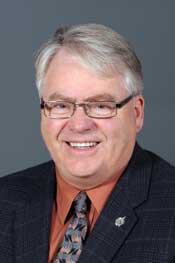 OTTAWA – Two or three times a year the rumour mills awaken and the cry “The election is coming!” rings from Ottawa across the land. So far, the moment has passed each time and Parliament gets back to work.
OTTAWA – Two or three times a year the rumour mills awaken and the cry “The election is coming!” rings from Ottawa across the land. So far, the moment has passed each time and Parliament gets back to work.
Predicting election dates is impossible. Like guessing the weather ten days ahead. Or the score of the Grey Cup. There are too many variables. Still, there are things to consider:
Polls matter. No party willingly goes to the public with low poll numbers. The last few polls show voters are dissatisfied with both Harper and Ignatieff, who are barely able to attract a third of voters each. If polls predicted a Conservative majority Harper would call an election in a minute. If the Liberals saw the same, they would try to force one. But that’s not happening right now.
Money matters. After the 2008 election, all parties faced depleted war chests. The Liberals were said to be the poorest, and therefore gun-shy. Without them, the other opposition parties couldn’t bring down the government. So Harper has run roughshod over Parliament since 2008. He filled his budgets with “poison pills” and made the country eat them. Harper pulled money from many groups – savage attacks on the Status of Women were only the most publicized. Dozens more wounds were inflicted on the powerless. But until the Liberals stop losing votes because of too many empty seats, such actions continue.
Issues? Sometimes a “defining Issue” can require an election. An issue so important to voters that they demand an election. Voters have no real “switch” to throw, but the mood of the people can be so clear that none dare to ignore it. There are a lot of issues that are making voters angry: the HST, Harper’s disrespect of democracy and our traditions, his stubbornness on climate change, broken promises (such as on spending, Senate reform, or Afghanistan), and neglecting the cost of living increases people are burdened with. But no single issue is galvanizing voters. But sometimes even without a single defining issue, the public will seize some less obvious issue and then make it clear that they WILL be heard!
Election fatigue. We’ve often seen a public mood that doesn’t want any more elections. It’s understandable, since Canada has now had far more elections since World War II than Italy (often cited as “unstable”). But it’s Canadians that are often tired of an election every two years in what’s become the Western world’s most wobbly democracy. They’re tired of the constant politicking and they don’t want to spend $350 million on yet another election. That fatigue with elections helped keep Harper there, even though his party was the least committed to working with others to run the country.
Timing matters. Harper can avoid the embarrassment of an election for awhile, but his options are limited. This fall was impossible. Municipal elections in many provinces – especially vote-rich Ontario – kept all activists busy with neither time nor money for their federal parties. In October of 2011, Ontario and Manitoba go to the polls provincially. Again, less time and money for a federal campaign.
This brings us to next spring, 2011… the next logical time. In Ottawa and in ridings across the country, parties are moving planning and mobilizing into higher gear.
New Democrats are ready for an election, if one arrives. We have many talented, experienced MPs. We’ve kept our promises. Our people are professional and ethical. New Democrats – not the Liberals – have been the real opposition to Harper since 2008. We have been the leaders, not just in holding Harper in check but in bringing our own sensible and practical ideas to Parliament. We’re ready.
Bruce Hyer, MP
Thunder Bay Superior North
